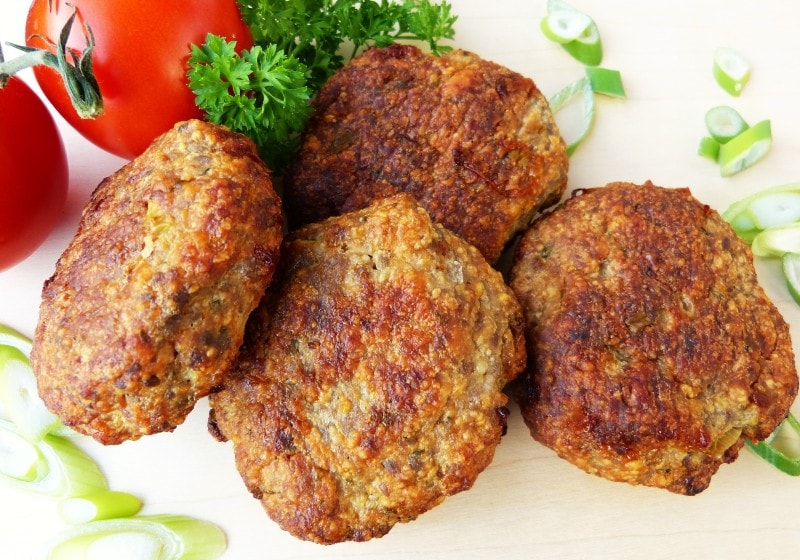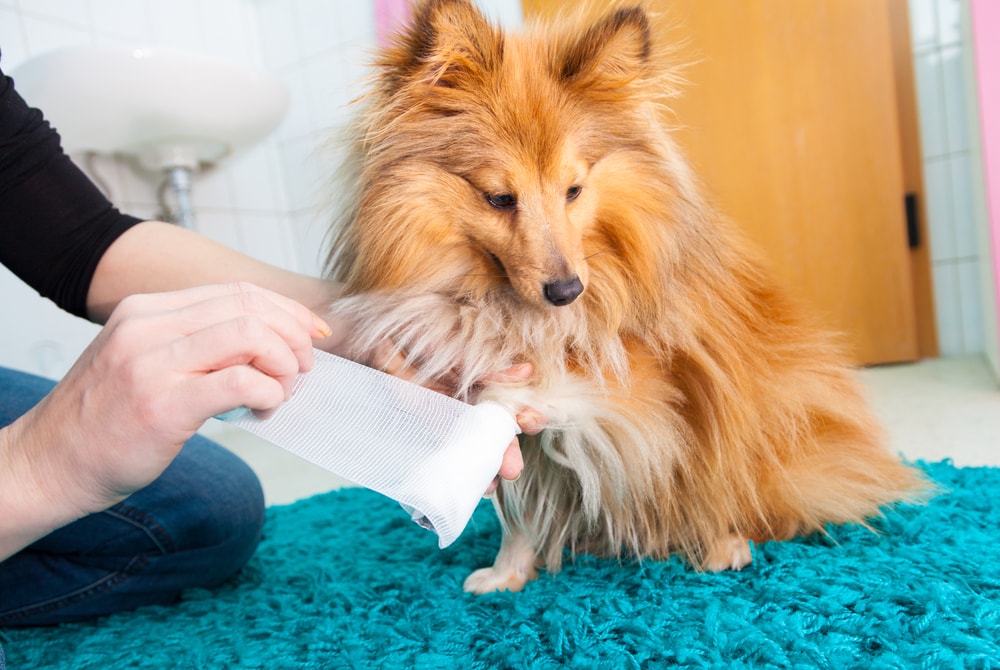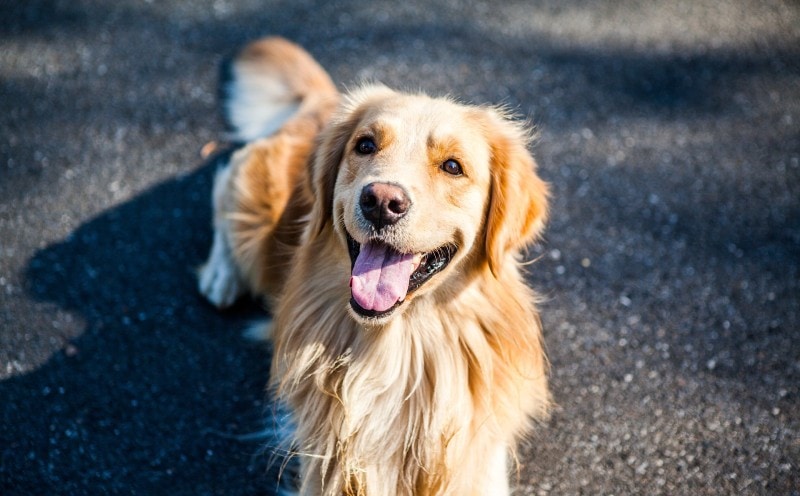Can Dogs Eat Falafel? Read This Before You Give Them One!
By Jordyn Alger
Updated on

Has your dog gotten into the food you made for yourself? Not only is that an inconvenient interruption for your meal, but it can also be a cause for concern if your dog gets into something he shouldn’t have. If your dog has taken a few bites out of your falafel, you may have reason to be concerned—depending on the ingredients, of course. Except for the chickpeas, most of the falafel’s components are unsuitable for dogs. Keep reading to learn which ingredients in falafels may cause your dog harm.
What Is Falafel?
Falafels are deep-fried patties or balls that are popular in Middle Eastern cuisine. They are often wrapped inside a pita or taboon and may also be served with toppings such as hot sauce, salads, pickled vegetables, and other sauces.
Many of the ingredients in falafel are considered unsafe for your dog to consume. Unless you make falafel without most of its key ingredients (and at that point, is it really falafel?), you should not feed it to your dog.
What Are Some Common Ingredients in Falafel?
We’ve already established that falafel is unsafe for your dog, but what makes it so unhealthy? Which ingredients cause falafel to be unsafe, and on the other hand, which are safe for your dog to eat? Here are some common falafel ingredients and their effect on canines.
Chickpeas
Ground chickpeas are one of the few ingredients that dogs can eat. However, there are some aspects to investigate before you hurry to add chickpeas to your dog’s diet. Potential allergies will be one of the first things to consider. Before incorporating chickpeas into your dog’s regular meals, offer your dog just one chickpea and monitor him for any skin irritation or gastrointestinal upset.
Another factor to think about is what kind of chickpeas you can safely feed your dog. Fresh chickpeas are safe for your dog. But hummus, dried chickpeas, and canned chickpeas present unique health dangers to your dog and should be avoided. Hummus often contains ingredients that are toxic to dogs, such as bell peppers, onions, and garlic. Dried chickpeas may be a choking hazard, and canned chickpeas often have high levels of sodium that are unhealthy for your dog.
Assuming that your dog has no adverse reaction to the food, chickpeas can provide plenty of great benefits. First, chickpeas are an excellent source of vitamins and minerals such as iron, magnesium, vitamin C, vitamin A, and potassium. The potassium benefits your dog’s heart health, as it works to combat high blood pressure.
Likewise, chickpeas are high in protein and fiber. This combination will help your dog develop and maintain healthy musculature and keep his digestive system healthy. Since chickpeas are low in calories, they can be an appropriate treat for dogs that need to watch their weight.
Overall, chickpeas are generally considered healthy for your dog as long as proper caution is observed and they are fed in moderation.
Fava Beans
Fava beans, also known as broad beans, are sometimes used in falafel as a replacement for chickpeas or in combination with chickpeas. Either way, fava beans are not safe for your dog to consume. This is because fava beans contain phytohemagglutinin or PHA.
PHA is a compound that is toxic to canines. If your dog has consumed too much PHA, he may experience stomach upset, vomiting, and diarrhea.
Onions and Garlic
Onions and garlic are two common ingredients in falafel, and they are both extremely dangerous for your dog. If your dog consumes these foods, he will likely experience digestive problems causing him to vomit. Drooling, irritation around the mouth, diarrhea, and abdominal pain are also common. However, the full severity of eating onions and garlic may take days to manifest.
The most worrying feature of these ingredients is their potential to attack your dog’s blood. Onions and garlic have oxidizing components that can damage the red blood cell’s membrane, cause the cell to become unstable, and then destroy it. Red blood cells are crucial to the healthy function of your dog’s body, as they are instrumental in transporting oxygen throughout the body. If your dog’s red blood cell count drops, he can develop anemia.
Signs that your dog is suffering from anemia include a higher heart rate, a decrease in appetite, weight loss, and pale gums. Your dog could even experience kidney damage or death.
Salt and Pepper
Most seasonings are unsafe for dogs, and salt and pepper are no exception. While salt is an essential part of your dog’s diet, too much salt is dangerous. While one or two bites of a salty snack aren’t likely to cause too many issues, it is not advised to add salty human snacks to your dog’s diet.
If your dog has eaten too much salt, he may experience vomiting, diarrhea, lethargy, excessive thirst, and decreased appetite. Even more frightening, he may suffer from discoordination or even seizures.
What to Do if Your Dog Ate Something He Should Not Have
If you suspect your dog got into something he shouldn’t have—such as falafel—you should reach out to your veterinarian immediately. If possible, make a note of the falafel’s ingredients so you can relay them to your vet.
Conclusion
It is always a bit overwhelming when our dogs get into something they shouldn’t have. If you are ever concerned for the state of your dog’s health and well-being, do not hesitate to reach out to your vet or a pet poison control center for advice and treatment. Most ingredients in falafel are too dangerous to feed your dog, so it is best if you keep them out of reach of your hungry pup.















